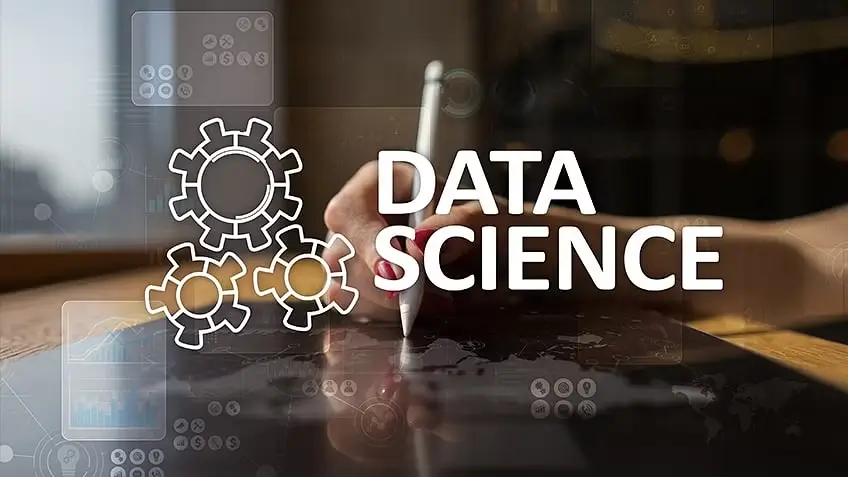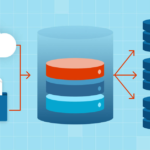In recent years, data science has been one of the most talked-about career paths. It offers exciting opportunities, high salaries, and a chance to work on cutting-edge technologies. But as we enter 2025, some people are questioning whether the field has become oversaturated. Let’s dive deep into this topic and analyze is data science oversaturated?
Understanding Data Science
Before delving into the question at hand, it’s crucial to understand what data science entails. At its core, data science involves extracting knowledge and insights from structured and unstructured data through various techniques such as data analysis, machine learning, and statistical modeling. These insights are then used to inform business strategies, optimize processes, and drive innovation across industries.
What Does “Oversaturated” Mean in Careers?
Before exploring whether data science is oversaturated, it’s important to understand what this term means. In simple terms, oversaturation occurs when there are more job seekers than available jobs in a particular field. This can lead to increased competition, lower salaries, and limited opportunities for growth.
When applied to data science, oversaturation would mean too many aspiring data scientists and not enough roles to accommodate them.
The Growth of Data Science Over the Years
Data science has experienced tremendous growth over the past decade. Several factors have contributed to its rise:
- Explosion of Big Data: Companies started generating massive amounts of data, creating a need for professionals to analyze and extract insights.
- Advancements in Technology: Tools like Python, R, and cloud computing made data analysis more accessible.
- High Demand Across Industries: From healthcare to finance, almost every industry required data-driven solutions.
- Attractive Salaries: Data science roles often came with lucrative pay packages, attracting professionals from diverse backgrounds.
According to a report by the U.S. Bureau of Labor Statistics, jobs in the data science field are expected to grow by 36% through 2031—a rate significantly higher than the average for all occupations. Despite this, some regions and sectors are seeing increased competition.
Exploring Job Market Trends
One way to gauge whether data science is oversaturated is by examining job market trends. A quick search on popular job portals reveals a plethora of opportunities for data scientists, ranging from entry-level positions to senior roles. Companies across diverse sectors, including technology, finance, healthcare, and e-commerce, are actively seeking data science talent to leverage the power of data in their operations.
Despite the abundance of job postings, there is fierce competition for coveted data science roles, especially in top-tier companies and tech hubs like Silicon Valley. This high demand for data science talent suggests that the field is far from being oversaturated. However, it’s essential to delve deeper into the nuances of the job market to paint a more accurate picture.

Analyzing Educational Opportunities
Another factor to consider when evaluating the saturation of data science is the availability of educational opportunities. As interest in data science continues to soar, universities, online platforms, and coding bootcamps have responded by offering a excess of courses, certificates, and degree programs in data science and related fields.
While the abundance of educational resources may seem overwhelming at first glance, it indicates a growing demand for skilled professionals in the field. Moreover, the diversity of educational pathways allows individuals from diverse backgrounds to acquire the necessary skills to pursue a career in data science, thereby expanding the talent pool.
Assessing Industry Demand
Beyond job market trends and educational opportunities, it’s crucial to assess the demand for data science skills across different industries. From healthcare and finance to retail and entertainment, organizations are increasingly relying on data-driven insights to gain a competitive edge and stay ahead of the curve.
In particular, the demand for data science in fields like genomics, environmental science, healthcare, biotechnology, bioinformatics, clinical research, and pharmaceuticals is on the rise.
Healthcare data science play a crucial role in analyzing patient data, improving healthcare outcomes, and optimizing hospital operations. A number of healthcare data scientist employers keep providing job opportunities for skilled data scientists.
Environmental data science is vital for monitoring and mitigating environmental risks, such as climate change and pollution. That’s why we see a noticeable increase in environmental data science companies working all over the globe.
Some top medical AI companies are leveraging data science to develop innovative solutions for diagnosing diseases, personalizing treatment plans, and improving patient care.
Similarly, bioinformatics companies are using data science to analyze biological data, such as DNA sequences, and uncover insights that can lead to breakthroughs in medicine and biotechnology.
Clinical data scientists work closely with healthcare providers and researchers to analyze clinical trial data, identify trends, and enhance the efficacy and safety of medical treatments. Emerging trend of data-driven healthcare is forcing clinical data scientist companies to hire more and more data scientist
Lastly, AI biotech companies are harnessing the power of data science to accelerate drug discovery, develop precision medicine solutions, and revolutionize the biopharmaceutical industry.

Signs of Oversaturation in Data Science
On the other hand, some indicators suggest that data science might be approaching oversaturation. Here are a few signs:
1. Increased Competition for Entry-Level Roles
One of the clearest signs is the growing competition for junior data science positions. Job postings for entry-level roles often receive hundreds, if not thousands, of applications. A recent survey from LinkedIn Economic Graph showed that over 70% of entry-level data science roles are filled by candidates with 2-3 years of experience.
2. Decline in Job Postings
While the demand for data scientists remains high, there has been a slight decline in the number of job postings in some regions. For instance, a 2024 report by Gartner noted a 12% year-over-year decrease in data scientist job postings in North America.
3. Rise of Specialized Roles
Instead of hiring generalist data scientists, many organizations are looking for specialists in fields like machine learning, natural language processing, or data engineering. According to a 2025 report by Indeed, demand for data engineers has grown by 45%, while the demand for generalist data scientists has plateaued.
4. Automation of Data Tasks
Advancements in tools and technologies have automated many tasks that were once performed by data scientists. For example, platforms like AutoML and AI-driven analytics tools allow businesses to perform complex analyses with minimal human intervention. As a result, some roles that relied on manual data processing are becoming obsolete. Articles by Forbes discuss how automation is reshaping the job market.
Why Data Science Is Not Fully Oversaturated
Despite these signs, it’s too early to declare data science completely oversaturated. Here are some reasons why:
1. Growing Importance of Data-Driven Decisions
Organizations continue to recognize the value of data-driven strategies. A 2025 Deloitte survey found that 89% of executives view data as a core component of their decision-making processes. This means the demand for skilled data professionals remains strong.
2. Emerging Industries
New industries, such as autonomous vehicles, renewable energy, and personalized medicine, are creating fresh opportunities for data scientists. For example, the global market for healthcare analytics is projected to grow to $125 billion by 2030, according to McKinsey & Company.
3. Global Opportunities
While competition might be intense in certain regions, other parts of the world still face a shortage of skilled data scientists. Remote work has also opened doors for professionals to work with international companies. For instance, countries in Asia and Africa are seeing rapid digitization, creating a need for data science expertise.
4. Continuous Learning
Data science is a dynamic field. Professionals who stay updated with the latest tools, techniques, and trends can maintain a competitive edge. Those willing to specialize or learn niche skills remain in demand. Platforms like Coursera offer courses to help professionals upskill.
Embracing Opportunities for Growth
Rather than viewing the proliferation of data science professionals as a threat, it’s essential to recognize the countless opportunities for growth and innovation that the field presents. As businesses increasingly rely on data to drive decision-making and gain a competitive edge, the role of data scientists becomes more critical than ever.
Moreover, data science is a multidisciplinary field that intersects with various domains, including computer science, mathematics, statistics, and domain-specific knowledge. As such, there is ample room for specialization and diversification within the field, allowing individuals to carve out unique career paths based on their interests and expertise.
If you’re considering a career in data science or looking to advance, here are some tips to stand out:
1. Focus on Niche Skills
Specializing in areas like deep learning, geospatial analysis, or bioinformatics can make you a more attractive candidate. According to Glassdoor, niche skills in AI and cloud computing command salaries 30% higher than generalist data science roles.
2. Build a Strong Portfolio
A well-crafted portfolio showcasing real-world projects can help you stand out. Work on projects that demonstrate your ability to solve business problems using data. Kaggle competitions and open-source contributions are excellent ways to showcase your skills.
3. Gain Domain Knowledge
Understanding the industry you want to work in is crucial. For example, knowing healthcare regulations can be a significant advantage for data scientists in the medical field. A 2025 McKinsey report emphasized that domain expertise is now a key differentiator in hiring.
4. Network Effectively
Connecting with professionals in the field can open doors to opportunities. Attend conferences, join online communities, and participate in hackathons to grow your network. LinkedIn’s 2024 data shows that 85% of data science roles are filled through networking.
5. Stay Updated
Keep learning and adapting to new trends. Familiarize yourself with emerging tools and technologies, such as generative AI, quantum computing, and cloud-based analytics. Platforms like Coursera and edX offer specialized courses to help you stay ahead.

The Future of Data Science
Looking ahead, the field of data science will continue to evolve. While some roles may become oversaturated, new opportunities will emerge. Here are a few trends to watch:
1. Integration of AI and Data Science
AI will play a larger role in data science workflows. Professionals who understand both fields will have a significant advantage. Gartner predicts that by 2027, 50% of data science tasks will be automated by AI, but new roles focused on managing and interpreting AI outputs will emerge.
2. Ethical Data Practices
As data privacy regulations become stricter, organizations will need experts who can navigate ethical and legal challenges. Roles like “Data Ethics Officer” are already appearing in large organizations.
3. Interdisciplinary Roles
The future of data science lies in its intersection with other disciplines. Roles that combine data science with biology, engineering, or business will grow in demand. For example, the demand for computational biologists has increased by 60% since 2020.
4. Continued Emphasis on Soft Skills
Technical skills alone won’t be enough. Communication, teamwork, and problem-solving abilities will become increasingly important. A 2025 LinkedIn Learning report highlighted that 67% of hiring managers prioritize soft skills in data science candidates.
Conclusion: Is Data Science Oversaturated?
So, is data science oversaturated? The answer isn’t straightforward. While the field has become more competitive, it’s far from obsolete. Opportunities still exist for those willing to adapt, learn, and specialize.
If you’re passionate about data science, don’t be discouraged by talk of oversaturation. Instead, focus on building your skills, gaining experience, and finding your unique niche. With the right approach, 2025 can still be the year you make your mark in data science.



